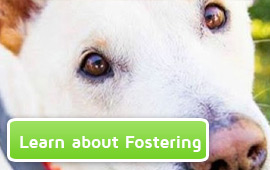Fear of going to the vet
https://positively.com/dog-behavior/behavior-problems/fears-and-phobias/fear-of-going-to-the-vet/
(Victoria Stilwell – “Positively”)
For your dog, the veterinarian can be a scary person to visit, and for good reason. A puppy’s first veterinary experience is often for vaccinations, which can create a life time of fear. If your dog puts the brakes on in front of the veterinary hospital or trembles as he waits for the vet to arrive, he is not alone. Most dogs have some kind of aversion to the vet’s office from understandable nerves to full blown panic attacks.
Modern veterinary medicine is trying to create a more relaxing environment for their clients. Dr. Marty Becker is currently developing an exciting new initiative called Fear Free Vet Visits which will help provide tools to attack this issue from many different angles – the owner, the vet, the vet’s staff, medical and procedural.
But what can you do to make the experience a little less frightening for your dog?
How to Help Your Dog Be Less Fearful of the Veterinarian
Make sure your puppy or dog likes or at least accepts being touched. Handle your puppy or dog’s paws, mouth, ears etc .and make it a pleasurable experience by pairing it with something your dog loves, such as food. When it comes time to being handled by a vet, the sensation should not be so unpleasant.
Take your dog to the veterinarian but not for a procedure. Have the receptionists, vet techs and veterinarians give your dog his favorite food or toy and build up a pleasant association with their presence.
Try to stay with your dog as much as possible for procedures. There might be procedures that have to be done away from you but you will give your dog much more confidence if you are there to comfort him.
Ask the vet techs get a non slip mat for the floor or table. Most examination tables are metal and slippery. This makes dogs very uncomfortable and even more insecure.
Take tasty treats with you and give them to your dog while you are waiting. If your dog is too stressed he might not feel like eating.
If your dog likes being touched give him a massage to relax him. Long, gentle strokes should bring down his stress levels.
Be calm because the more stressed you are the more your dog will feel it.
Play calming music to your dog, which helps reduce anxiety.
Ask your vet about hosting puppy play parties so that pups build up a positive association with the environment.
If your dog is too stressed you might have to give him a sedative to calm him down before you leave for his appointment.
For wellness visits and simple procedures consider having the veterinarian do a home visit. This kind of medical practice is becoming a lot more popular.



